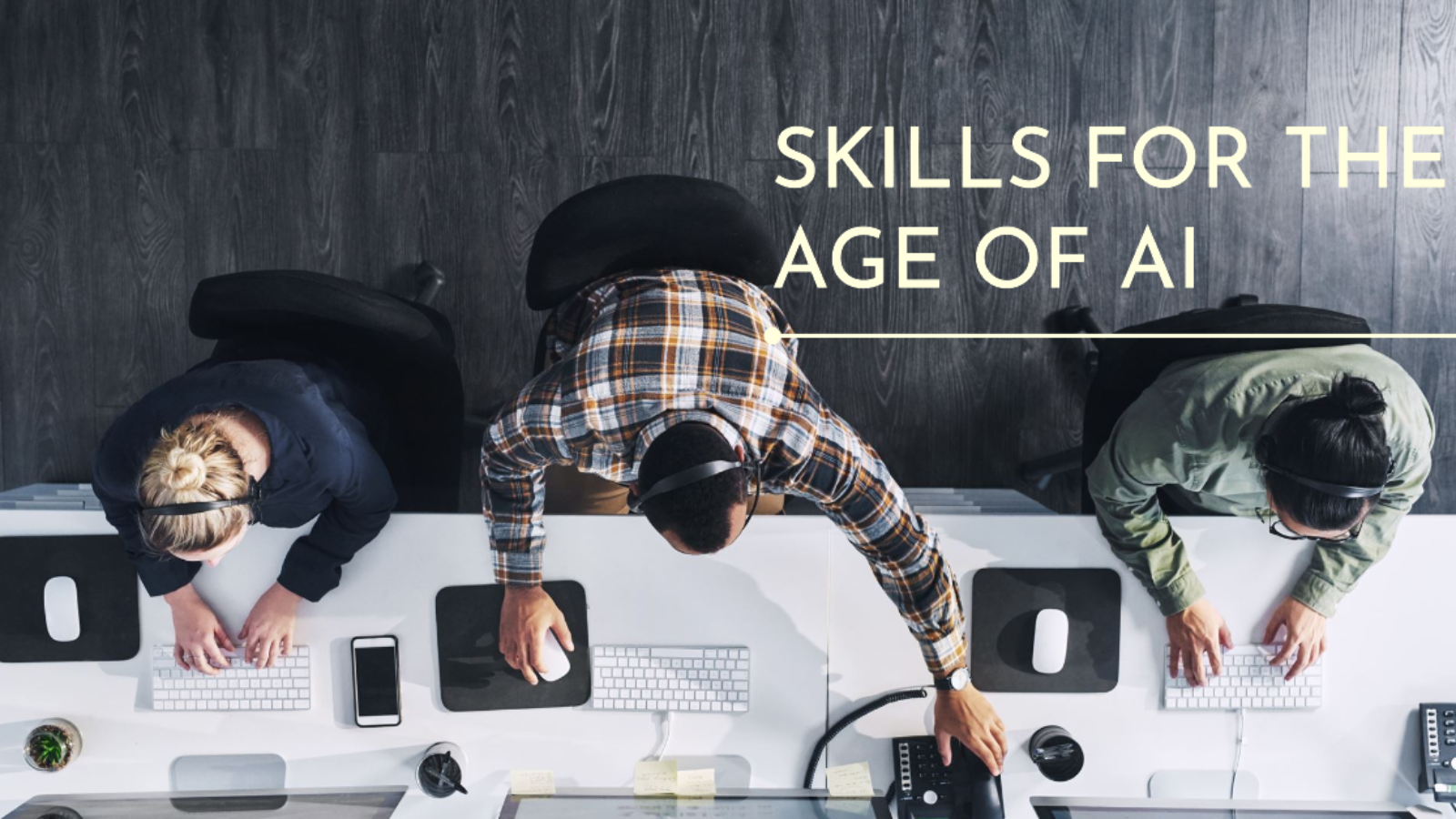Artificial intelligence (AI) is driving a seismic upheaval in the job world. As AI automates tasks and reshapes industries, a critical question emerges: what skills do employees need to equip themselves to remain relevant and valuable in this new era?
The Future of Jobs Survey 2023 provides valuable insights into this pressing question. By surveying companies across various sectors, the report sheds light on the skills they deem most crucial for employees in the coming years, along with the training they plan to invest in to bridge the skill gap. This information serves as a vital roadmap to navigate the evolving workplace and thrive in the age of AI.
This blog delves deeper into the findings of the survey, exploring the specific skills identified as essential for success in the AI-powered future. We’ll also discuss the broader implications of GenAI, the generation raised alongside AI, and their unique perspectives and needs.
The Survey’s Insights:
The survey highlights two rapidly rising skills on which companies plan to focus their training budgets: AI and big data, and leadership and social influence. This underscores the dual importance of technical expertise and human-centric skills in the age of AI.
Understanding GenAI:
Beyond specific skills, understanding GenAI, the generation raised with AI, is crucial. This involves grasping its potential and power, risks and challenges, and its impact on organizations and learning functions. By understanding GenAI’s perspective and needs, we can better prepare future workforces to thrive alongside AI.
1. Potential and Power of GenAI:
GenAI individuals have grown up surrounded by AI, shaping their perspectives and approaches to technology integration. They may possess:
- Native fluency: A natural comfort level with using and interacting with AI tools and technologies.
- Innovative thinking: An ability to envision and develop creative solutions that leverage AI’s capabilities.
- Ethical considerations: A heightened awareness of potential biases and ethical concerns surrounding AI development and deployment.
2. Risks and Challenges of GenAI:
Despite its potential, GenAI also presents certain challenges:
- Over-reliance on AI: Dependence on AI for tasks that could hinder critical thinking and problem-solving skills.
- Ethical dilemmas: Navigating the ethical implications of AI use, such as bias in algorithms or job displacement.
- Skills gap: The need for organizations to bridge the potential gap between GenAI’s skillset and the specific requirements of their roles.
3. Impact on Organizations and Learning Functions:
Understanding GenAI necessitates recognizing its impact on various aspects of work:
- Organizational structures: Adapting structures to accommodate GenAI’s collaborative and tech-savvy nature.
- Learning and development: Designing training programs that cater to GenAI’s learning styles and equip them with the necessary skills to thrive in an AI-integrated workplace.
- Culture and values: Fostering a culture that embraces diversity of thought, ethical considerations, and responsible AI use.
Recognizing GenAI’s unique perspective is crucial for preparing the future workforce. By understanding their strengths in AI fluency, innovative thinking, and ethical awareness, we can bridge the generational gap through smoother collaboration and knowledge transfer. Additionally, we can equip individuals with the necessary skills to work alongside AI and navigate the evolving workplace. Furthermore, this understanding allows us to proactively address potential ethical concerns surrounding AI use and ensure responsible development and deployment, fostering a collaborative and thriving future of work where both humans and AI can contribute meaningfully.
Essential Skills for the AI Age:
Here’s a breakdown of the key skills employees need to cultivate:
1. Adaptability and Continuous Learning:
The world of work is constantly evolving, and AI will only accelerate this pace. The ability to adapt to new technologies and learn new skills will be crucial. To keep on top of things, take advantage of chances for lifelong learning, such as workshops, certifications, and online courses..
2. Human-Centric Skills:
While AI excels in data analysis and automation, it lacks the human touch essential for success in many fields. Hone your soft skills like communication, collaboration, critical thinking, creativity, and problem-solving. These uniquely human abilities will remain highly sought after.
3. Data Literacy:
Understanding data is no longer a niche skill. As AI becomes more integrated into various aspects of work, having a basic understanding of data analysis, interpretation, and visualization will be advantageous. This allows you to collaborate effectively with AI systems and make informed decisions based on data insights.
4. Digital Fluency:
Being comfortable with technology is no longer optional. Familiarize yourself with digital tools and platforms relevant to your field. This could involve learning to use specific software, understanding digital marketing principles, or becoming proficient in online collaboration tools.
5. Specialization and Expertise:
While AI can handle routine tasks, deep expertise and specialization will remain valuable. To become an expert in your industry, concentrate on gaining a solid understanding of your particular domain and keep improving your abilities. This allows you to contribute unique insights and value that AI cannot replicate.
AI as a Tool, Not a Threat:
Remember, AI is not a replacement for human workers, but rather a tool that can augment our capabilities. By embracing these essential skills and continuously learning, we can ensure our continued relevance and contribute meaningfully to the future of work alongside AI.
What skills are you focusing on to stay relevant in the age of AI? Share your thoughts and experiences in the comments below!
For any queries write to Linnet Dave, Auxano’s Director and Executive coach on linnet@auxano-consulting.com or connect with her at +919820668179 for any queries on the subject and if you need to get a customized learning Intervention done for your organization.
(Written by Vineeta, Feature Image sources and credits: AI Generated)

